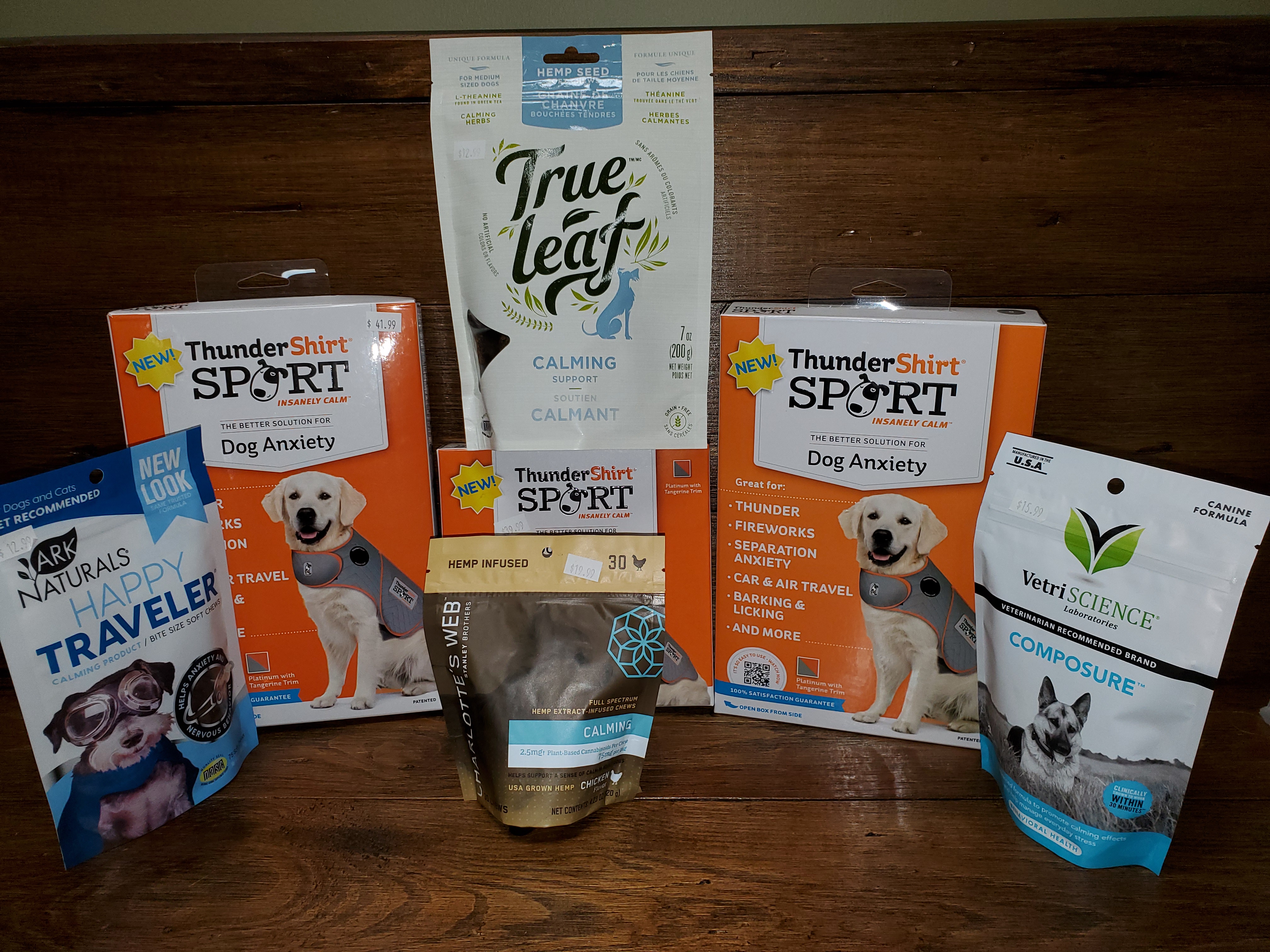recent Blog

6 Ways To Comfort Your Dog During Fireworks
Jun 27 | 2020Every 4th of July, Jon gives his 11-year-old Lakeland terrier, Scout, a mild sedative. He drives her as far from the local fireworks as possible, cranks up the radio, and makes a heroic attempt to keep her calm. Scout isn’t alone.
So, why are dogs afraid of fireworks, and what can we do to help them? Fortunately, there are plenty of simple strategies for dog owners. From distraction to anti-anxiety vests and more, we’ve rounded up all the tips you need to help your pet feel better when the noises start.
1. Stay indoors or get away from it all
Experts from the Humane Society emphasize the importance of keeping your dog indoors on fireworks-heavy days. This helps reduce their exposure to the sounds, plus prevent their running away. Turning on a radio or television helps provide white noise and distraction.
Also, consider leaving town for a quieter spot if you can. Camping, perhaps? If you’re not able to get away, and you live in an area with lots of fireworks activity, try a pet sitter who doesn’t live as close to all that noise. A loving, local sitter or doggy day care provider can also help if your pup is going to be alone over the holiday.
2. Talk to your vet about possible medications
Talk to your veterinarian about medication if you know your pet is upset by the holiday festivities. There are a variety of options that could help treat your dog’s firework phobia.
- Pheromones. Available via a diffuser, a spray, or a collar, Adaptil dog-appeasing pheromones can reduce your dog’s anxiety—whether it’s related to fireworks, storms, traveling, or separation. A research study published in the Journal of the British Veterinary Association specifically evaluated its use for storm phobia in dogs and found it effective.
- Melatonin This over-the-counter supplement is widely available. When using melatonin for anxiety, pet parents report differing levels of relief. Dr. Dodman, in his book The Well-Adjusted Dog, states that while he’s seen some success stories, melatonin isn’t always effective—” but it never hurts to try.” Talk to your veterinarian about appropriate doses for your dog.
- Prescription medications. Especially in severe cases, medication can be a lifesaver for a noise-phobic dog. Your veterinarian can guide you through the various choices.
- CBD products. Like humans, dogs and cats have an endocannabinoid system that allows them to benefit from CBD oil. This system allows the active ingredients in hemp to help relieve many symptoms. CBD drops for dogs or CBD dog treats can ease several conditions your pup may suffer from either occasionally or chronically, Anxiety and stress during the holiday.
3. Give your dog lots of snuggles
A common myth has it that if you pet your pup during an anxious episode, they’ll feel more afraid.
However, calmly soothing and reassuring your dog is fine as long as you avoid loud exclamations or frantic movements. So, cuddle away!
4. Invest in a pressure wrap or vest
These snug-fitting vests apply sustained, comforting pressure to your dog’s torso.
Temple Grandin, professor of animal sciences, has researched this method and discusses it in her book Animals make us Human. Dr. Grandin advises putting on the wrap for 20-30 minutes, removing it for a similar period, and then reapplying it. A handful of companies offer them; we like ThunderShirt.
5. Prevent escapes
More dogs go missing over the 4th of July than at any other time of year. The reason? They get spooked. This can happen when you least expect it! To help:
- Make sure your dog has identification. Even indoor pets can panic and use drastic measures to escape when frightened. Microchipping your dog is a good protective step.
- Don’t leave your dog unattended at home. If you’re headed out to enjoy the holiday without them, find a sitter. For more great tips—and a video—on securing your home and yard, check out this handy post. It also details just what to do if your dog does get out.
6. Distract your dog with treats or activities they enjoy
Dr. Stanley Coren, Professor Emeritus of Psychiatry at the University of British Columbia, prefers the following steps over anti-anxiety drugs. “Some meds take several weeks to build up,” he said. “You always have the behavior techniques at hand.”
Coren’s top techniques for a fireworks-averse dog include:
- Act as though you do not recognize the behavior. Walk him and talk to him as if you were back in puppy training, giving treats for sitting and staying.
- Get them involved with something else, or as he says, “jolly them up.”



